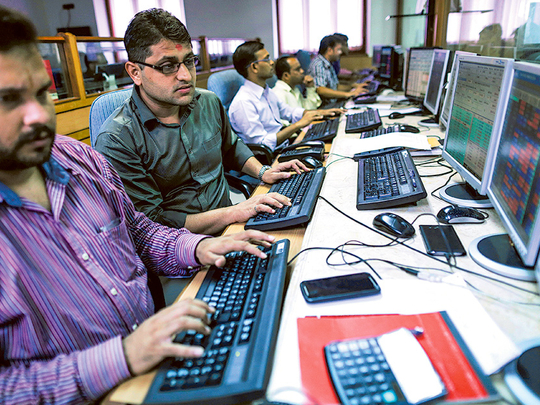
Mumbai: India’s markets regulator plans to increase penalties on high-speed trading firms that flood exchanges with orders that don’t result into actual transactions, as part of steps aimed at strengthening its oversight of computerised trading.
The Securities & Exchange Board of India, or Sebi, is also considering checks on super fast strategies by using a fraction-of-a-second speed bump and minimum resting time to delay orders so that all participants see the market at the same speed, Chairman U.K. Sinha said in Mumbai on Wednesday.
The proposals came amid a growing chorus calling for the market regulator to take action against high-frequency traders gaining preferential access at the country’s biggest exchange. A report by one of Sebi’s own advisory panels recently called for a full investigation into claims of collusion between the National Stock Exchange of India Ltd. and a high-frequency trading (HFT) firm. The report was the only example among major global markets to identify probable collusion between an exchange and a high-speed firm.
“We’re moving to tackle systemic risk as well as issues of unfair access in HFT trading,” Sinha said. “We’re also asking the exchanges to ensure that HFT traders don’t misuse the system.”
Delay trades
Among the proposals being considered include separation of co-location orders and adoption of auction system that blunts the edge of the fastest traders. Broadcast of order-book information is being looked into to ensure there’s no preferential treatment, Sinha said. The measures will be released in the next three to four months, he said.
“We need to see whether the changes ultimately bring a level-playing field or impede the market’s growth,” Manoj Nagpal, chief executive officer at Mumbai-based Outlook Asia Capital Pvt., an investment consulting and wealth management firm, said by phone. “Markets globally are grappling with ways to regulate HFT without disrupting the system.”
Regulators the world over have focused their efforts on preventing spoofing, an attempt by traders to move prices by placing bogus orders, as they grapple with the most effective ways to police computer-driven markets. For every 27 orders placed on US exchanges, about one is filled, data from the US Securities and Exchange Commission show. In other words, approximately 96 per cent of all orders sent to US equity markets are cancelled.
Stronger rules
India’s BSE Ltd. charges up to 0.1 rupee per order when a brokerage’s order-to-trade ratio falls between 250 and 500, according to the exchange’s website.
“While Sebi is among the first regulators to have some kind of regulations in place on HFT, there is a need to make it more stronger,” he said.
India’s high-frequency and algorithmic transactions now account for 40 per cent of total volumes, the highest proportion in the developing world and up from the low single digits five years ago, according to Danielle Tierney, senior analyst at Aite Group, a Boston-based consulting firm. Sebi, which issued broad guidelines on HFT in 2012 and 2013, said in December it’s considering new restrictions, but has so far taken no action.
“We will soon put out a discussion paper on the entire issue and the final regulations would be framed after taking into account inputs from all stakeholders,” Sinha said.












